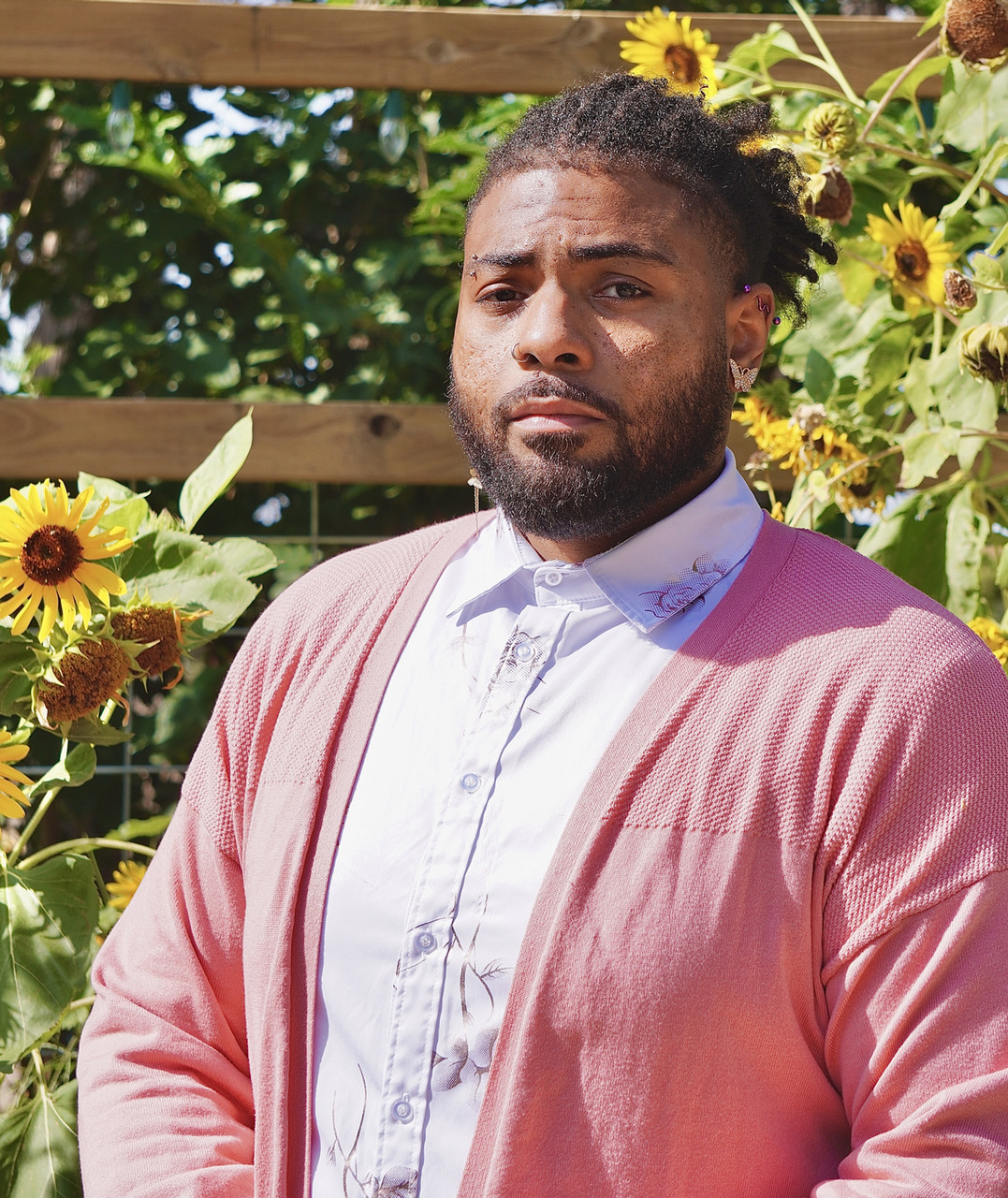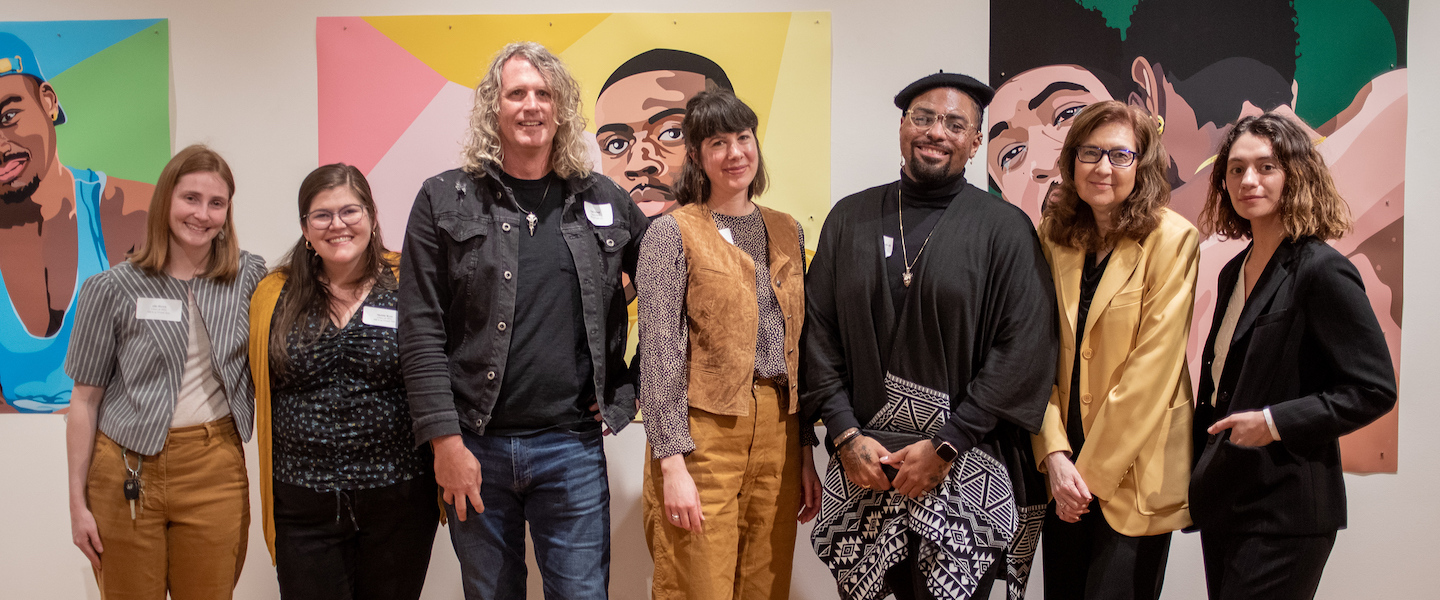 Name: Heriberto “Eddie” Palacio III
Name: Heriberto “Eddie” Palacio III
Area of study: Master of Fine Arts, Class of 2020
Hometown: New York, New York
Current position: Visual Artist | Barber | Fine Arts PhD Candidate at Texas Tech University
What drew you to Watkins College of Art?
“I was terrified of going back to school because I thought I was going have to give up my job to be a full-time student again. But being in a low residency MFA program, I was able to maintain my professional career and pursue higher education. It was flexible for me on a personal, practical and financial level. I sought an MFA program that wouldn't box me into a medium or way of working, and this program allowed me the flexibility to establish a studio-research practice that was focused on my interests as an artist and practitioner."
Walk us through a day in your life.
“It's complex right now — I'm a practicing artist, a practicing, licensed barber and a Ph.D. student with a fellowship at Texas Tech right now. During the day, I often teach on campus, and the rest of my time is spent researching and squeezing in time to work on my art practice and barbering. It’s a pretty jam-packed day if they’re all happening at once!”
How did your time in Watkins prepare you for your day-to-day?
“My time at Watkins taught me accountability: how to sustain an art practice outside of school, where someone is checking in constantly. There was immediate respect from the faculty who treated us as a practicing artist already and gave us the tools to maintain that practice. The environment is welcoming, open and exploratory. Instead of navigating you to a specific viewpoint, the professors help you make sense of your own ideas and hone in on the medium that speaks to those ideas the most. I loved that freedom and the encouragement to be context and concept-focused. There's also a lot of camaraderie among the Watkins professors.”
What advice would you give to those who are multi-passionate?
“Follow your instincts and follow your heart. Don’t be afraid to have ideas that don’t fit into a specific box — sometimes it fits into multiple things, or a new box. Pursue your ideas with an open mind. The unknown is where the play comes in. Just have fun, dive in and see what happens! You’ll start to see what comes up for you and where you want to go.”
What is your main area of study?
“My scholarship and practice revolves around Black masculinity, platonic intimacy, how that intimacy is perceived and what the boundaries are within that intimacy. I'm trying to challenge our perceptions of what platonic intimacy is, especially when it comes to the rhetoric around Black bodies being over-sexualized.
That’s why I’m a barber as well. The experience of getting a haircut is so physical, but oftentimes the barber’s chair feels like therapy to some people. I'm tapping into that by also training to be a therapist and researching ethnography. I'm interested in how my practical profession as an artist and a barber intersects with becoming a therapist and being a scholar — in how they interact among the mess without trying to separate them into silos.
There's uneasiness when you are on the verge of something new. There isn’t an established scholarship or art practice focused on this yet, but 30 or 40 years from now, there could be professional pathways for barber therapists. All these professions that we have now evolved from basic ideas initially, so there will become a box for it if there’s a need.”
Describe an experience from your time in the program that still sticks with you today.
“When I first got to Watkins, we had to do a presentation on who we are and what we’re doing. I remember during my presentation, everybody's eyes popped out their head because I got up there and I said ‘I don't want to talk about my blackness in my art practice. I don't want to talk about my queerness. I don't want to talk about my identity. I don’t want to be tokenized.’
I kept avoiding my identity the first year, but it kept coming back around, so I finally faced it and that’s what caused me to evolve. My professors let me discover it on my own. They heard me, and that was super important, especially being a person of color. Most of my professors were white, and that was a scary moment for me, as the only Black person in my program. But my experience ended up being really great. They truly care about your well-being. Still to this day, my professors check in on me and continue to provide wisdom.”
What was it like going to school in Nashville?
“The art scene in Nashville is very well-connected and community based. We want to get everyone involved. There's a lot of moving and shaking as the city continues to grow, and with that comes more diversity, both culturally and artistically. It was great to see what my art practice did in that type of environment.”
Want to learn more about art at Belmont?

